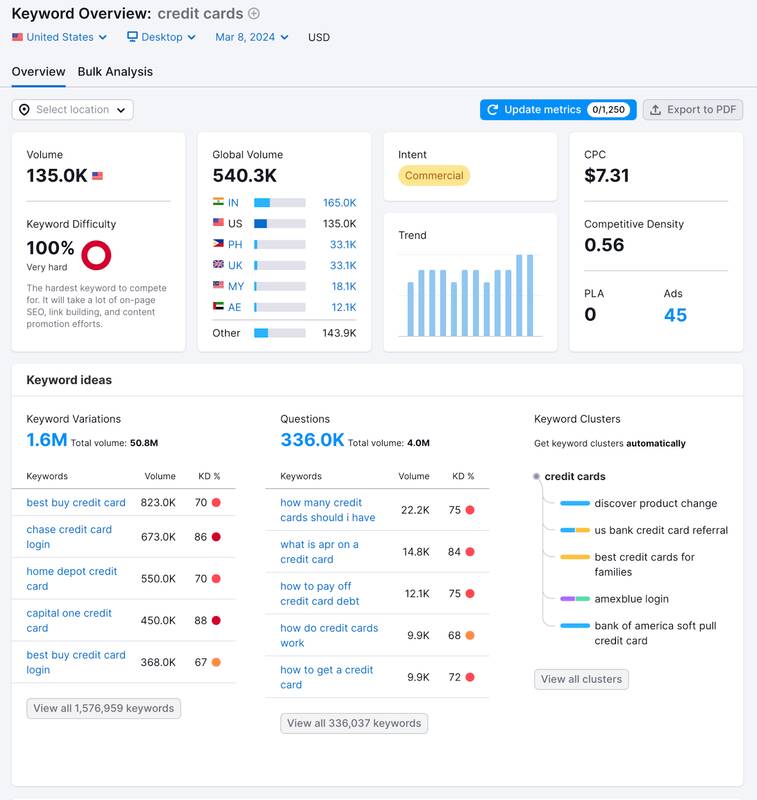Building a website for affiliate marketing offers a range of benefits, including full control over branding and content, the ability to optimize for search engines, and the opportunity to engage with a targeted audience.
It provides multiple monetization avenues and access to valuable analytics and insights. A website enhances credibility, fosters trust, and offers flexibility and scalability for growth. It ensures compliance with legal standards and allows for global reach and 24/7 availability.
Additionally, it provides personal development opportunities by helping you acquire essential digital marketing skills and entrepreneurial experience.
Why Build an affiliate marketing site
1. Control and Customization
You can design the website to reflect your unique brand, including the choice of logo, color scheme, typography, and overall design aesthetic.
This helps establish a memorable brand identity that differentiates you from competitors and appeals to the target audience.
Affiliate website allows you to produce and manage content according to your standards and goals. You can decide the topics, formats, and frequency of content, ensuring consistency with your brand message and audience expectations.
2. SEO Advantages
You can improve your website’s visibility in search engine results by implementing SEO best practices, such as keyword optimization, quality content, and backlink building.

Higher rankings lead to increased organic traffic and potential conversions.
Regularly publishing high-quality, informative, and valuable content helps establish your website as a trusted source of information in your niche. This authority can translate into higher rankings and more trust from your audience.
SEO Best Practices: 10 Ways to Boost Organic Rankings & Traffic
3. Audience Engagement
With your website, you can create content specifically tailored to the interests and needs of your target audience. This targeted approach increases engagement and the likelihood of conversions.
Interactive features like comment sections, forums, and social media integrations can foster a sense of community among your visitors. Engaging with your audience builds loyalty and encourages repeat visits.
4. Monetization Opportunities
Besides affiliate marketing, your website can generate income through various channels, such as displaying ads (e.g., Google AdSense), offering sponsored posts, selling digital or physical products, and providing services like consultations or courses.
Owning a website allows you to directly negotiate with advertisers and brands for better commission rates, rather than relying on third-party affiliate networks.
5. Analytics and Insights
Tools like Google Analytics provide comprehensive data on visitor behavior, traffic sources, conversion rates, and more. These insights help you understand what content resonates with your audience and how to optimize your site for better performance.
You can identify which strategies are most effective by analyzing the performance of different affiliate links and content pieces. This allows you to focus your efforts on high-performing areas and improve underperforming ones.
6. Credibility and Trust
A well-designed, user-friendly website enhances your credibility and professionalism. Visitors are more likely to trust and engage with a site that looks polished and reliable.
Providing high-quality, valuable content builds trust with your audience. When visitors find your content helpful and informative, they are more likely to trust your recommendations and click on your affiliate links.
7. Flexibility and Scalability
Owning a website allows you to quickly adapt to changes in the market, emerging trends, and user preferences. You can easily update content, add new features, and experiment with different strategies.
As your website attracts more traffic and gains influence, you can scale your operations. This might include expanding your content offerings, collaborating with more brands, or diversifying your monetization methods.
9. Global Reach
A website allows you to reach a global audience, breaking geographical barriers. You can attract visitors from different regions and demographics, expanding your potential market.
Unlike a physical store, your website is accessible to users at all times. This means potential customers can engage with your content and make purchases whenever they want, increasing the chances of conversions.
10. Personal Development
Running a website helps you develop many skills, including marketing, content creation, SEO, web development, and data analysis. These skills are valuable assets for any digital entrepreneur.
Managing and growing an online business provides practical experience in entrepreneurship. You learn how to strategize, solve problems, and make data-driven decisions, all of which are essential for success in the digital economy.
By leveraging these benefits, you can build a successful affiliate marketing business through your website, creating a sustainable and profitable online presence.
